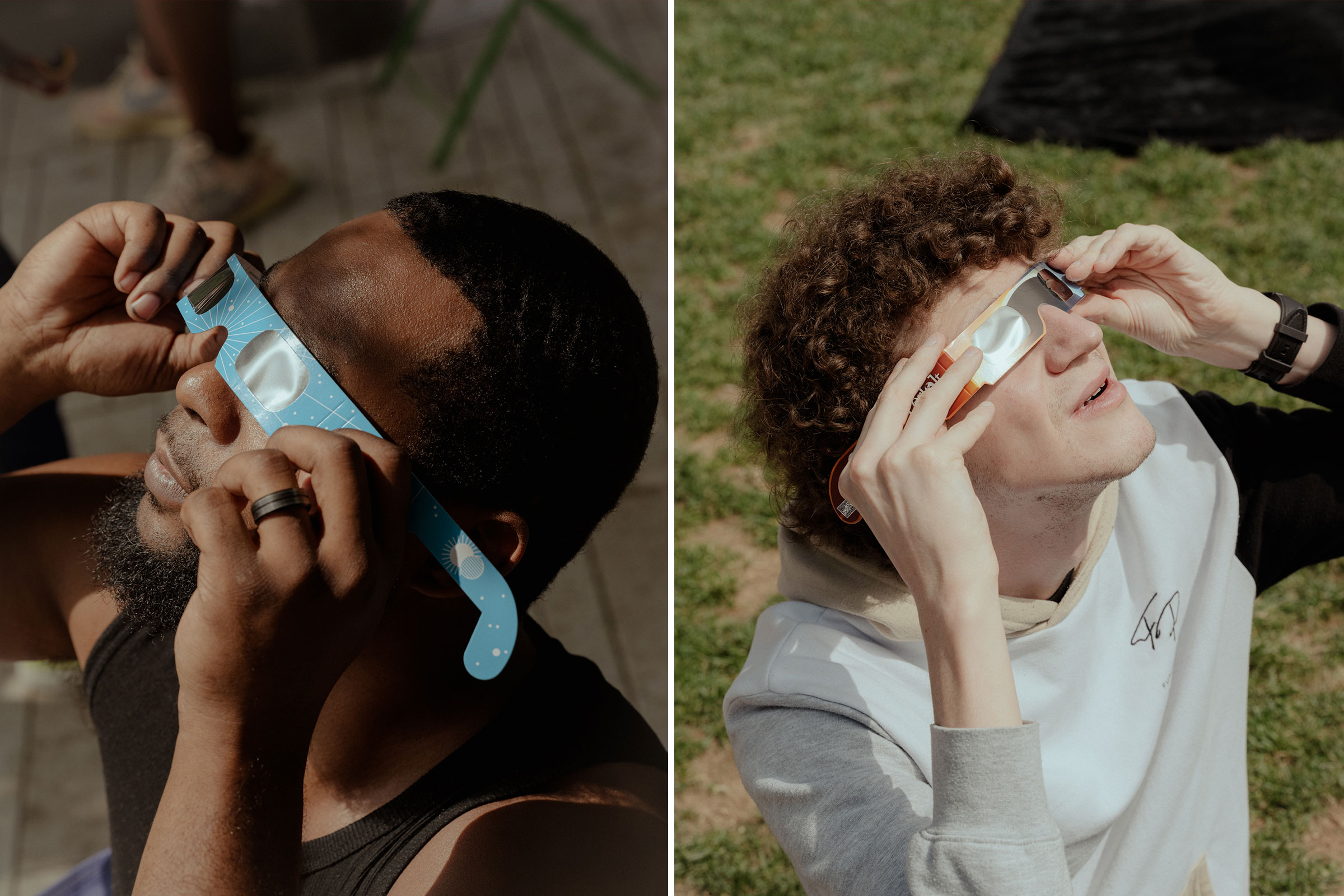More than 31 million people who live in the roughly 115-mile wide path of totality, and millions more who traveled to the U.S. to see Monday’s total solar eclipse, will all be gazing at the sun wearing the same thing: solar eclipse glasses.
The highly-coveted item is important for eye safety, especially for those who live outside of the zone of totality and can only see a partial eclipse. But after the eclipse is done, people should be sure to dispose of their eclipse-viewing lenses properly.
Because most eclipse glasses are made out of cardboard, the arms of the glasses can be recycled so long as the lenses are thrown out, according to the University of Rochester.

Eclipse lovers can also choose to donate their glasses. Astronomers Without Borders will be collecting gently-used eclipse glasses from the U.S. and Canada. The campaign, which has been running since 2008, redistributes glasses to people in other countries for upcoming eclipses. Of the millions that were donated during the 2017 total solar eclipse that also crossed through the U.S. only tens of thousands were usable. Thanks to a partnership with Astronomers Without Borders, glasses can be dropped off at all Warby Parker locations across the country for recycling.
Eclipse Glasses USA is also taking donations for two programs, though only one focuses on reusing existing glasses. Through the "5 for 1 program," every five-pack of eclipse glasses purchased, one pair of glasses will be donated. The Eclipse Give Back program takes used glasses that do not have any scratches, punctures, tears, or other damage. The eclipse glasses will be sent to schools in Latin America so that children will be able to view the October 2024 annular eclipse. For more information about where to ship the glasses to, read here.
More Must-Reads from TIME
- Caitlin Clark Is TIME's 2024 Athlete of the Year
- Where Trump 2.0 Will Differ From 1.0
- Is Intermittent Fasting Good or Bad for You?
- The 100 Must-Read Books of 2024
- Column: If Optimism Feels Ridiculous Now, Try Hope
- The Future of Climate Action Is Trade Policy
- FX’s Say Nothing Is the Must-Watch Political Thriller of 2024
- Merle Bombardieri Is Helping People Make the Baby Decision
Contact us at letters@time.com